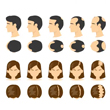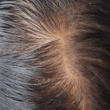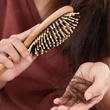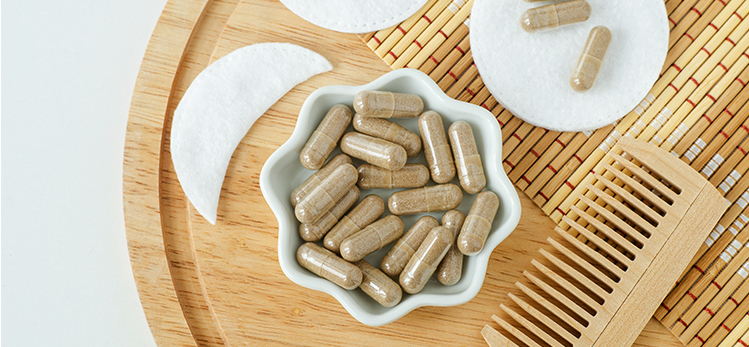Do Hair Growth Nutrients Really Work?
In order to keep up with their daily intake, many individuals ingest pills packed with the necessary nutrients required for hair growth.
Do Hair Growth Nutrients Really Work?

According to a double-blind study published in the Journal of Clinical and Aesthetic Dermatology, there isn't a significant difference between those who take hair growth nutrients daily and those who do not ingest strand-strengthening supplements of any kind. Having said that, do note that a lot more independent research is required within this field.
What Are the Different Nutrients Required to Enhance Growth?

Though several nutrients impact hair growth, the five major ones are mentioned below:
1. Zinc
For the unaware, zinc is considered to be an essential trace element. This implies that it is not created by the body itself and therefore needs to be received from outside sources. A low concentration of zinc typically results in the occurrence of alopecia hair loss. This condition is usually seen in individuals who consume extreme amounts of cereal grain and in those who do not consume adequate amounts of meat. In rare instances, this issue is also experienced by infants who survive on milk formula. Generally speaking, the problems associated with zinc deficiency can easily be solved by adding meat, fish, and zinc supplements to one's diet.
2. Iron
Interestingly, a lack of iron is considered to be one of the most common deficiencies all over the world. Apart from this, it is also one of the prominent causes of hair loss in women. This nutrient carries the oxygen present in the individual's red blood cells to their hair follicle. This, in turn, allows the follicles to flourish and gives them the strength required to elongate the strand's life cycle. Legumes, leafy greens, and red meat are great sources of iron.
3. Vitamin D
A fat-soluble substance, vitamin D is a vital part of the hair's growth cycle- specifically the anagen stage. Not only that, but several studies have proved that a lack of this nutrient can result in excessive hair loss. We recommend boosting your vitamin D levels by regularly consuming fatty fish and fortified milk to avoid this condition. Alternatively, you can also visit your family doctor and ask them for a vitamin D supplement prescription
4. Vitamin C
Though there is no direct link between vitamin C deficiency and hair loss, the former is still considered to be immensely important for hair growth. The nutrient works by enabling the intestines to comfortably and efficiently absorb the iron content within the same. Due to this, a lack of vitamin C can result in an iron deficiency, which can eventually lead to hair fall. Popular sources of vitamin C include citrus fruits, bell peppers, green leafy vegetables.

5. Biotin
While more research needs to be conducted on this topic, preliminary studies suggest that individuals with low biotin levels are at a higher risk of experiencing hair fall. This is particularly true for women. In order to increase the level of biotin in your system, we suggest incorporating meat, whole grains, and egg yolks into your daily meals.
Closing Thoughts
Including the nutrients necessary for healthy hair in your diet is essential. We hope this article gives you greater insight into how to keep your hair healthy.
Myth Busters HairFall

Androgenetic Alopecia - Everything You Need To Know
Have you been experiencing excessive hair fall over a prolonged period of time? It could be an early sign of androgenetic alopecia. It is a hair loss disorder common in both genders and can lead to progressive thinning and even baldness in some patients if not caught and treated early.

How To Make Hair Grow Faster For Men
A head full of healthy hair is a matter of confidence. Hair has its own mechanism of growing and shedding, and it is when this mechanism is thrown off that growth is hindered. Especially in the case of males, hair growth faces a lot of hiccups that can easily be managed.

Female Pattern Baldness - Causes & Treatments
Have you suddenly noticed an increase in the number of hair strands on your pillow in the morning? Or is your ponytail getting thinner by day? Well, you might be suffering from female pattern baldness. While that does sound scary, identifying it early on is key to treating this condition effectively. So keep reading to know what this is, how you can identify it, and most importantly, what treatments you can avail of to get your beautiful lustrous hair back.

What Are The Reasons For Hairfall?
Almost everyone experiences some amount of hair thinning over the years. Shedding around 50 to 100 single strands of hair per day is considered normal. However, losing more than 150 strands a day, experiencing sudden thinning, or developing circular bald patches on your scalp are reasons for concern. Hair loss occurs when new hair doesn’t grow fast enough to replace the amount of hair you lose daily. Hair can fall due to various reasons, with hereditary hair loss and poor nutrition being the most common hair fall reasons.

Expert Approved Tips For Hair Growth
What can be more debilitating than seeing hundreds of hair strands shedding from your scalp every time you brush your hair? Also, excessive molting occurs during seasonal changes that can be very stressful for you. Although it’s okay to lose between 50-100 strands every day, according to the American Academy of Dermatology, the problem occurs when you start shedding more than normal. But that doesn’t mean you have to feel helpless as there are ways to grow your hair back. Even if you are coping with baldness or alopecia, certain hair growth tips from dermatologists can come to your rescue. Read on to discover how these tips can be your savior when abnormal hair fall problems are in sight.
Trending Videos
+ 5 Sources
LMRC - GGI-CO-A2-DMA-300026127-300026127-WM-J21-282
© 2021 Dr. Reddy’s Laboratories Ltd. All rights reserved.
